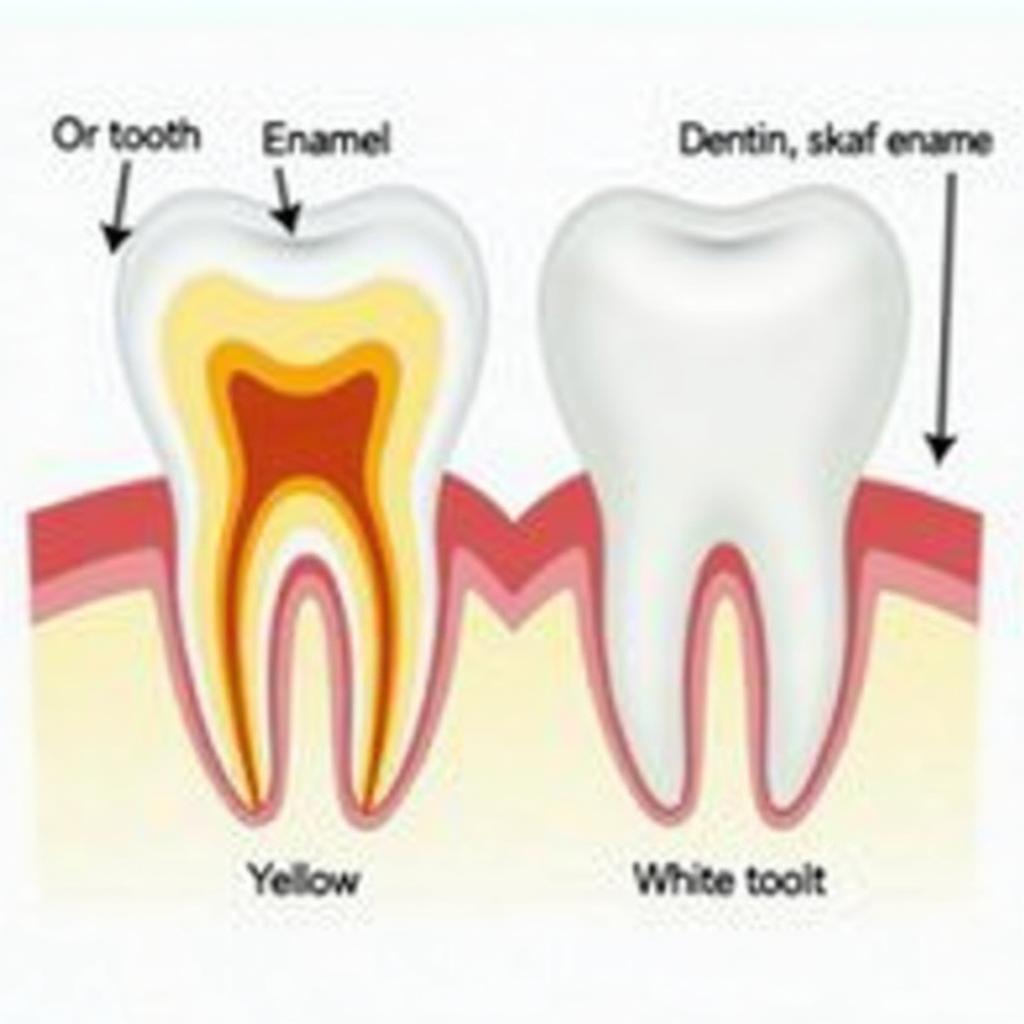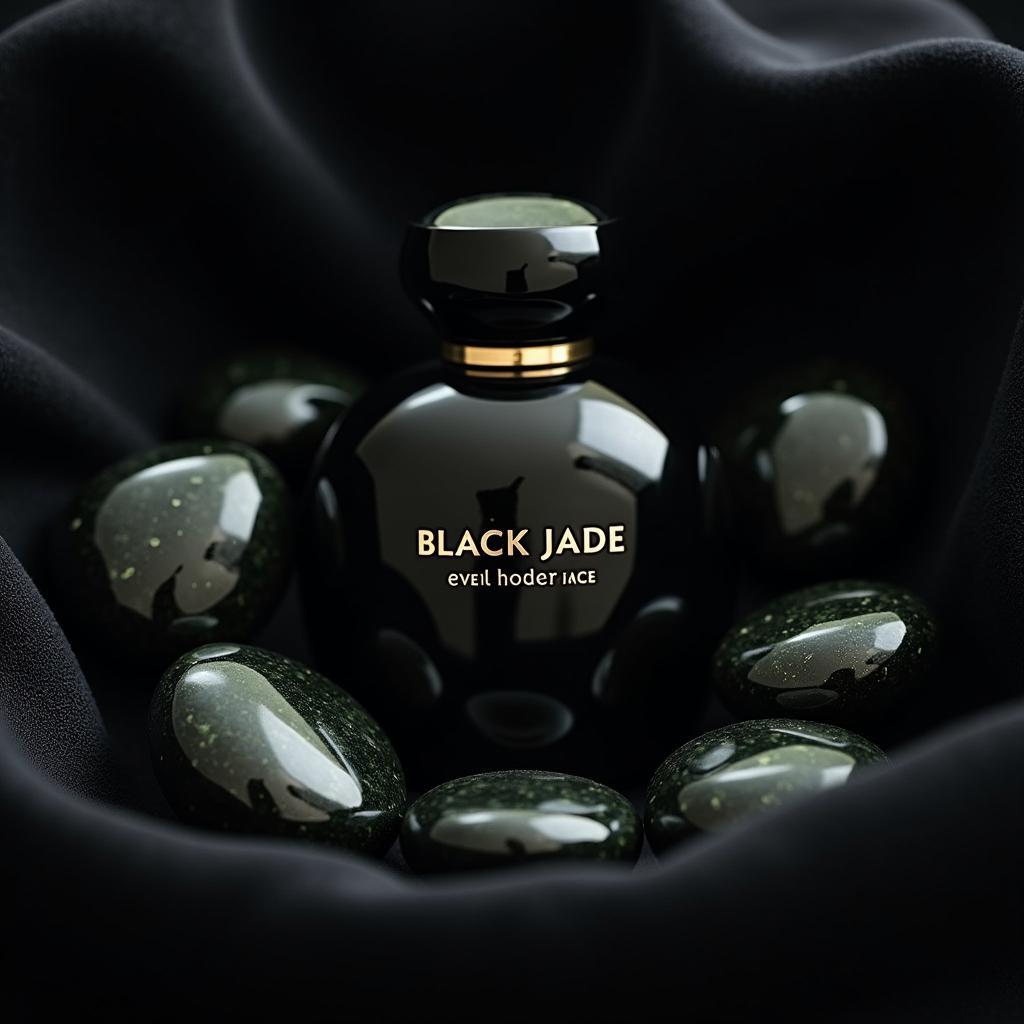
Is Yellow Teeth Stronger Than White Teeth?
- AmazoniaSilva
- Tháng 1 14, 2025
- Zodiac signs
- 0 Comments
Are yellow teeth actually stronger than pearly white ones? This is a common question, and the answer isn’t as straightforward as you might think. While dazzling white smiles are often associated with health and beauty, the truth about tooth strength and color is a bit more nuanced.
The Truth About Tooth Color and Strength
 Comparing the Strength of Yellow vs. White Teeth
Comparing the Strength of Yellow vs. White Teeth
The color of your teeth isn’t the sole indicator of their strength. Several factors influence both color and strength, and they don’t always correlate. While some people naturally have yellower teeth due to thicker dentin, this doesn’t automatically mean they have stronger teeth than someone with whiter enamel.
Factors Influencing Tooth Color
Many factors contribute to tooth color, including genetics, diet, age, and oral hygiene. Genetics plays a significant role in determining the thickness of your enamel and dentin. Dentin, the layer beneath the enamel, is naturally yellowish. Thicker dentin can make teeth appear yellower, even if the enamel is healthy. Consuming staining substances like coffee, tea, and red wine can also discolor teeth over time. As we age, our enamel naturally thins, allowing more of the yellow dentin to show through. Finally, poor oral hygiene can lead to plaque and tartar buildup, which can also make teeth appear yellow.
What Really Makes Teeth Strong?
Tooth strength primarily depends on the enamel’s mineral density and thickness. Enamel, the outermost layer of the tooth, is the hardest substance in the human body. A well-mineralized, thick enamel layer provides better protection against cavities and fractures. Good oral hygiene practices, including regular brushing, flossing, and dental checkups, are crucial for maintaining strong and healthy teeth, regardless of their color.
Do Yellow Teeth Mean More Fluoride?
Some people believe that yellow teeth indicate higher fluoride content, leading to increased strength. While fluoride is essential for strengthening enamel, excessive fluoride during tooth development can cause fluorosis, which can manifest as white spots or streaks, or in more severe cases, brown discoloration and pitting of the enamel. This doesn’t necessarily mean the teeth are stronger, and in some cases, it can even weaken them.
The Role of Diet and Lifestyle
A healthy diet rich in calcium, phosphorus, and vitamin D is essential for strong teeth. Avoiding sugary drinks and acidic foods can help protect enamel from erosion. Regular dental checkups and professional cleanings are also vital for removing plaque and tartar buildup, which can weaken enamel and contribute to tooth decay.
Conclusion
The idea that yellow teeth are inherently stronger than white teeth is a misconception. Tooth strength is determined by factors like enamel thickness and mineral density, not color. While genetics and dentin thickness can influence tooth color, maintaining good oral hygiene, a healthy diet, and regular dental checkups are the most important factors for strong and healthy teeth, regardless of their shade. Don’t be fooled by the myth – focus on maintaining healthy habits for a strong and healthy smile.
FAQ
- Are naturally yellow teeth stronger? Not necessarily. The color itself doesn’t indicate strength.
- Can yellow teeth be whitened? Yes, various whitening methods exist, but consult a dentist before trying any.
- Does fluoride make teeth yellow and stronger? Excessive fluoride can cause discoloration, but doesn’t necessarily make teeth stronger.
- How can I strengthen my tooth enamel? A healthy diet, good oral hygiene, and fluoride treatments can help.
- Is it bad if my teeth are naturally yellow? No, as long as they are healthy and well-maintained.
- What is dentin and how does it affect tooth color? Dentin is the layer beneath the enamel and is naturally yellowish. Thicker dentin can make teeth appear yellower.
- Does teeth whitening weaken teeth? Some whitening methods can temporarily weaken enamel, but it usually remineralizes.
Need more help? Contact us at Email: [email protected], address: Fifth Avenue, 34th Floor, New York, NY 10118, USA. We have a 24/7 customer support team.

